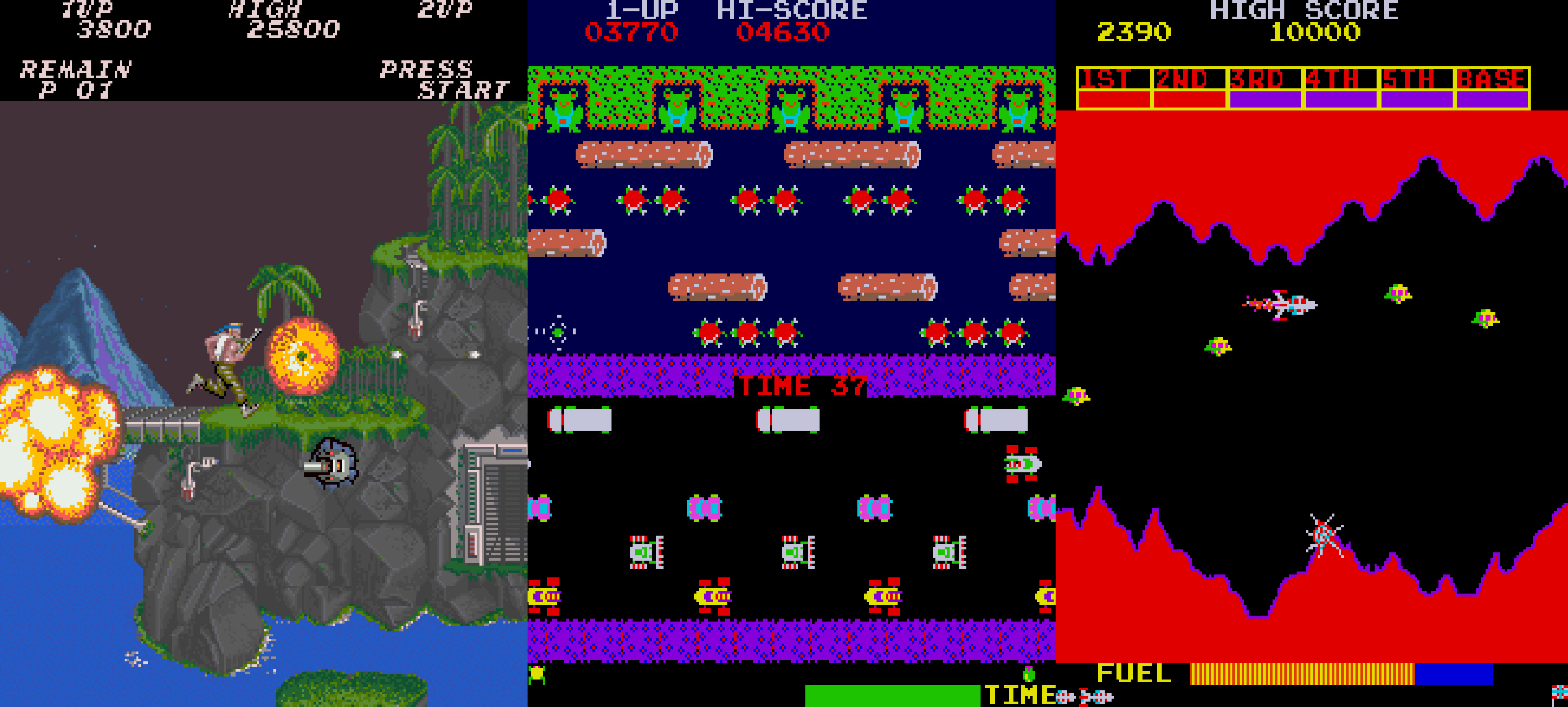Introduction
Konami, a household name in the gaming industry, played a pivotal role in shaping arcade gaming. Founded in 1969 by Kagemasa Kōzuki in Osaka, Japan, Konami grew from a jukebox repair business into a gaming powerhouse. Their innovative gameplay, memorable characters, and groundbreaking titles have left an enduring mark on the arcade industry. This article explores Konami’s contributions to arcade gaming, highlighting their most iconic titles, innovations, and lasting influence.
Konami’s Early Days in Arcade Gaming
Konami’s foray into arcade gaming began in the late 1970s, as the company pivoted from mechanical amusements to video games.
- Founding and Transition: Initially repairing jukeboxes, Konami shifted to arcade games in the late 1970s.
- First Major Hit: Scramble (1981), a horizontal shooter, showcased Konami’s knack for engaging gameplay and marked their entry into the arcade market.
- Establishing Global Presence: With a strong presence in Japan, Konami expanded globally, finding success in North America and Europe.
Key Arcade Titles and Their Impact
Konami’s arcade catalog includes some of the most beloved and influential games of all time. Here are a few standouts:
- Frogger (1981): A challenging game where players guide a frog across busy roads and rivers. Universally recognized for its simplicity and addictive gameplay.
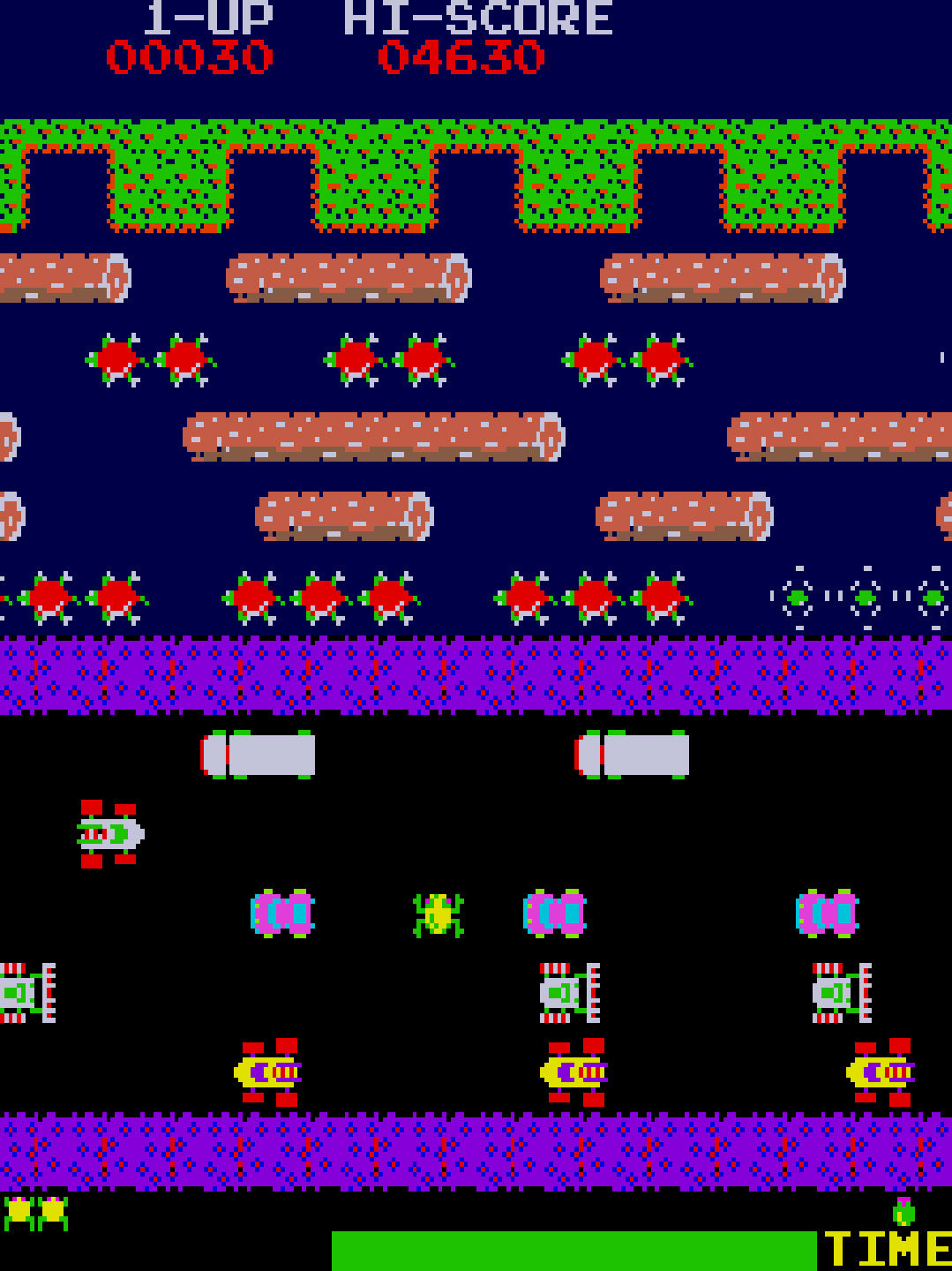
Scramble (1981): A horizontal shooter that introduced side-scrolling gameplay, paving the way for future shooters with its innovative mechanics.
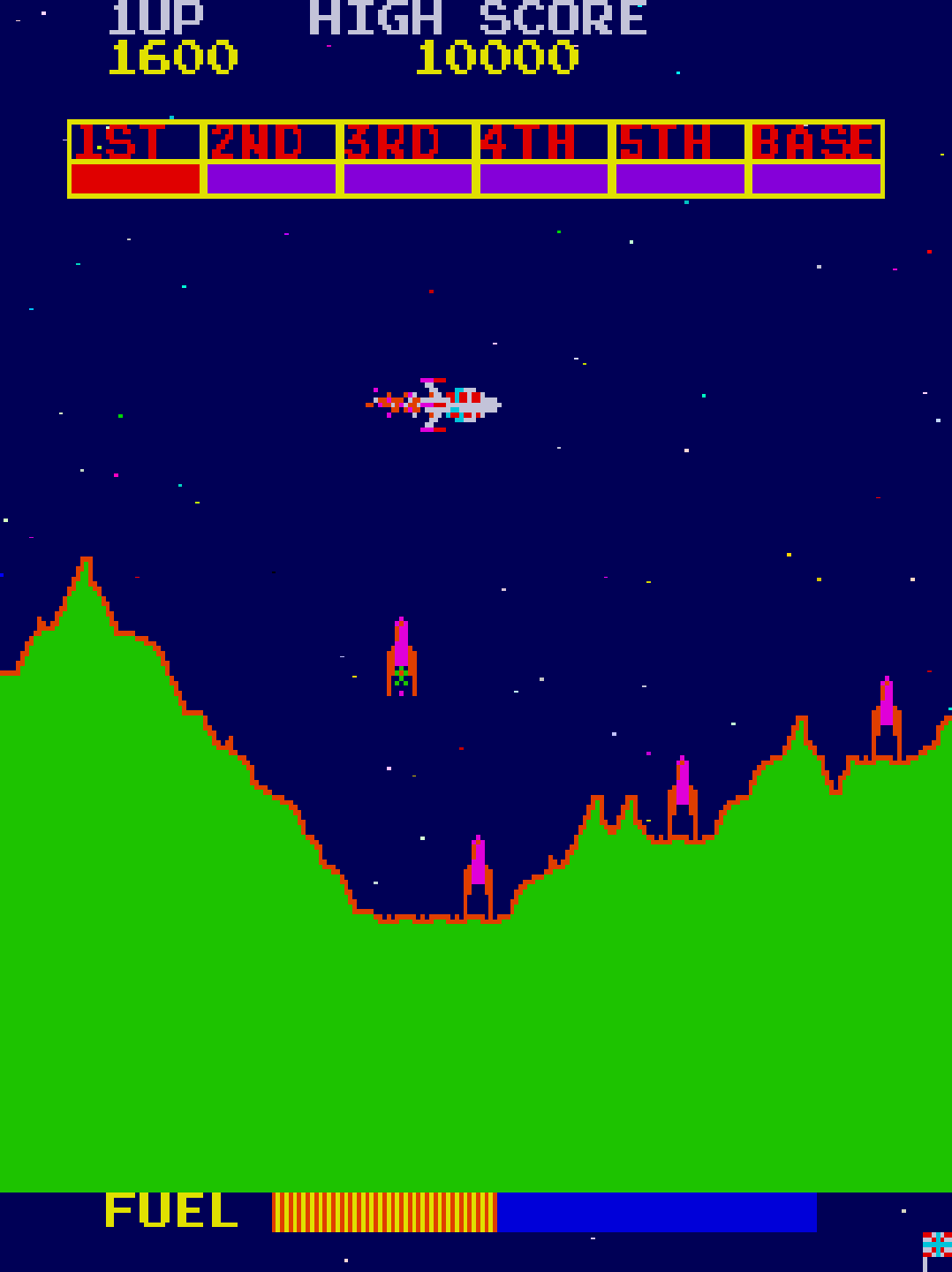
Contra (1987): A cooperative run-and-gun game known for its challenging gameplay and "Konami Code." Defined the run-and-gun genre and remains a cult favorite.
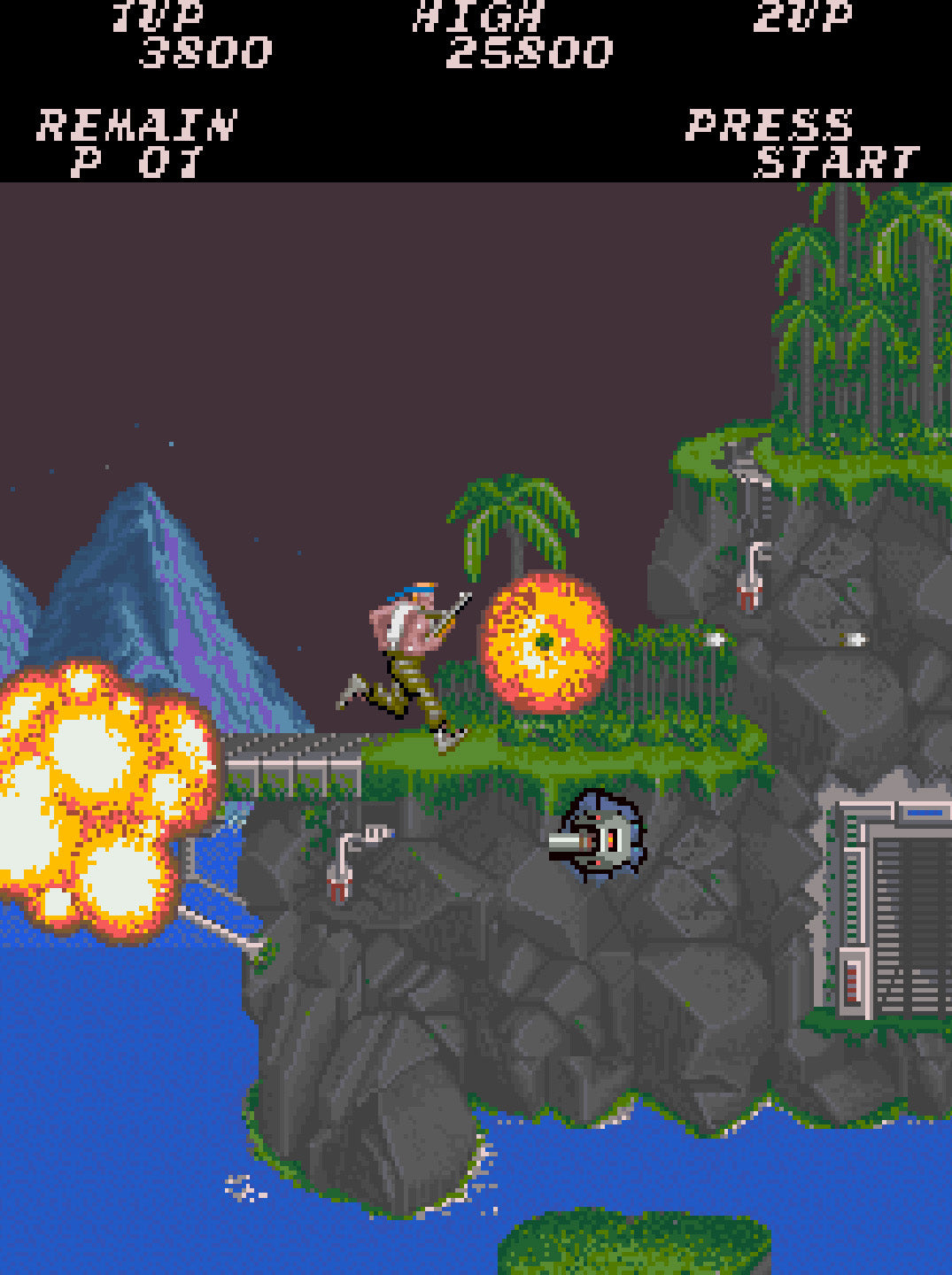
Teenage Mutant Ninja Turtles (1989): A beat ‘em up based on the popular cartoon series, featuring co-op gameplay for up to four players. Set the standard for licensed beat ‘em ups and became an arcade staple.
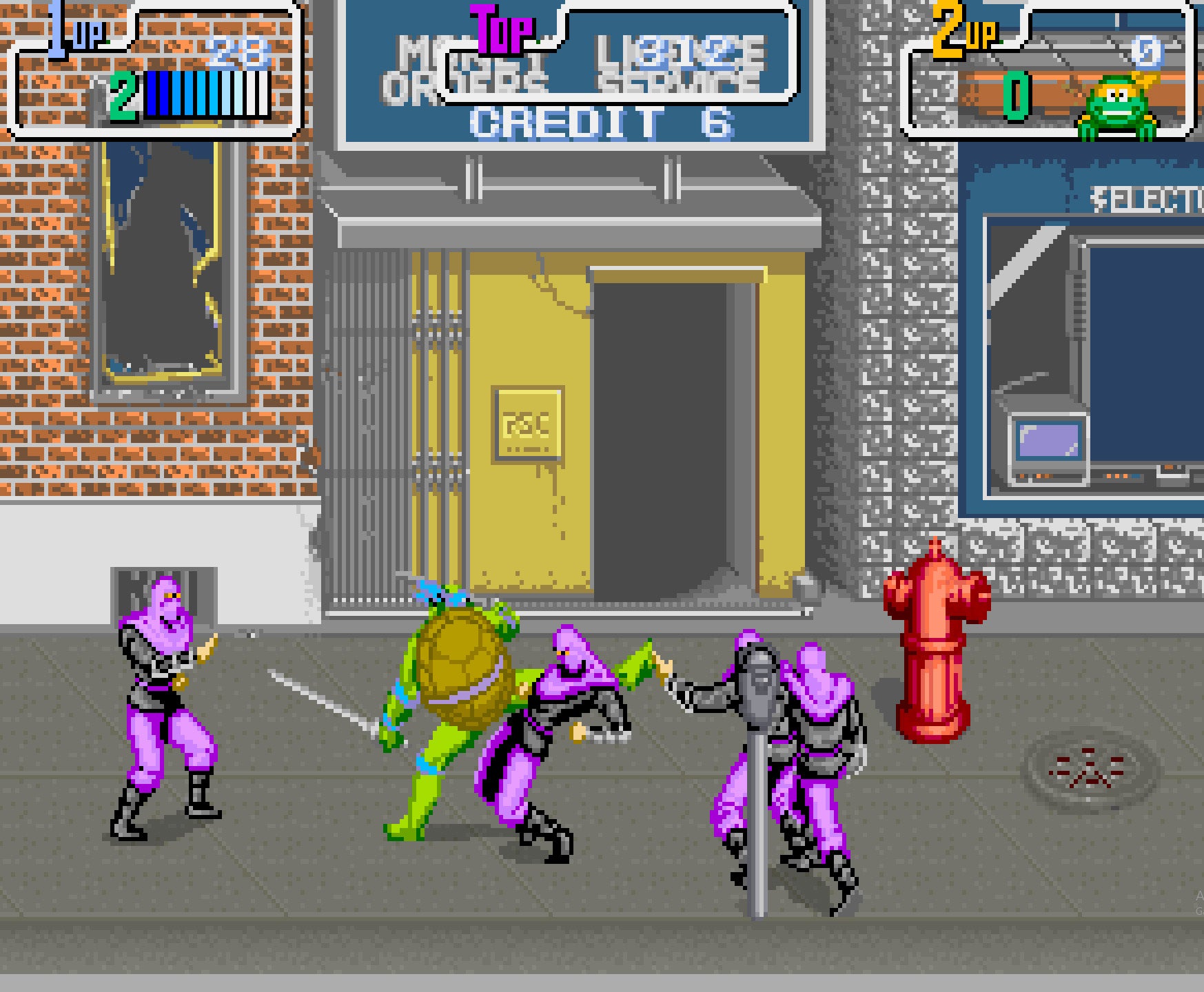
Sunset Riders (1991): A vibrant Western-themed run-and-gun game with cooperative gameplay and memorable characters. Known for its humor and engaging action.
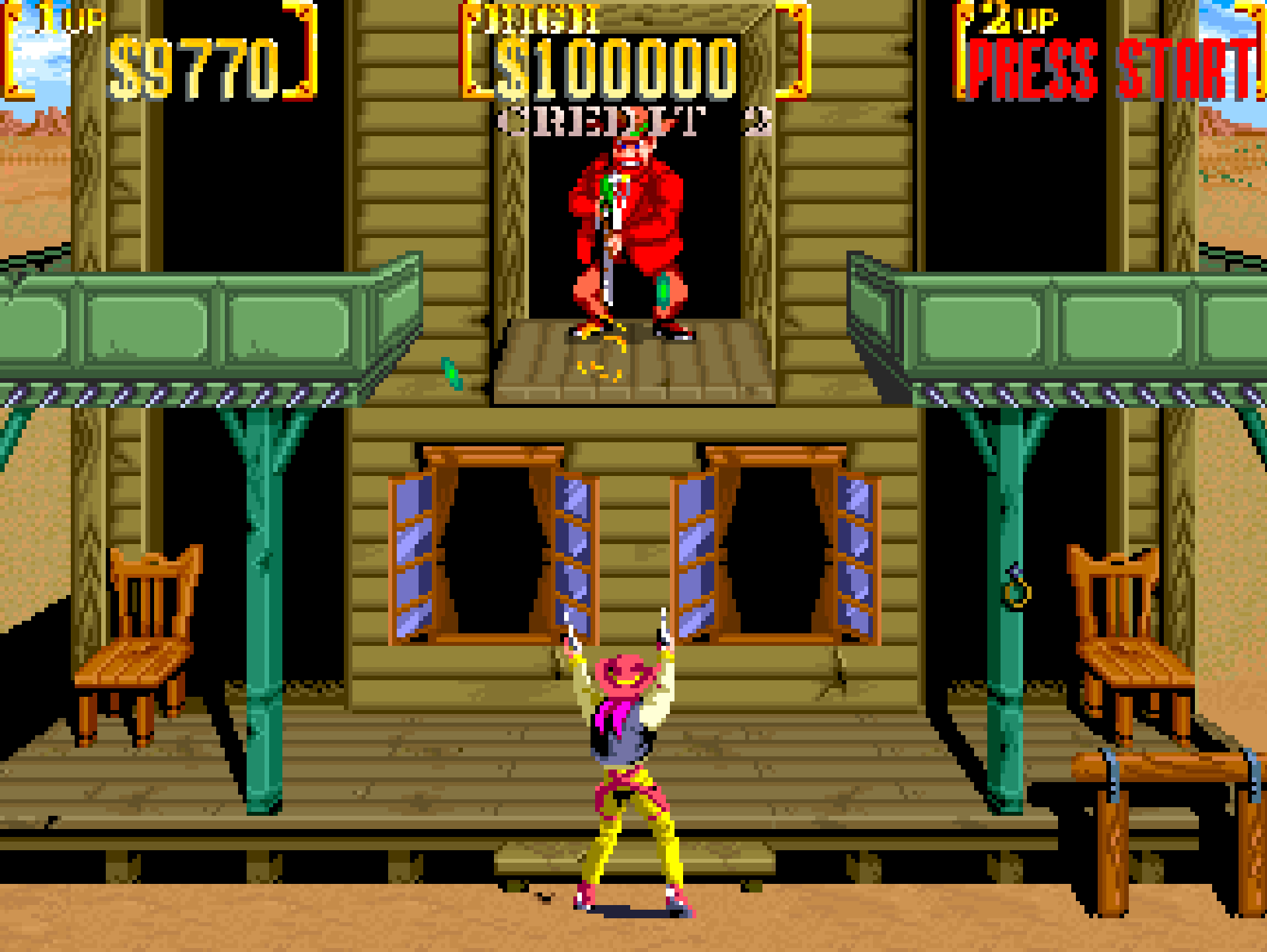
X-Men (1992): A six-player beat ‘em up featuring iconic Marvel superheroes. Celebrated for its multiplayer appeal and vibrant graphics.
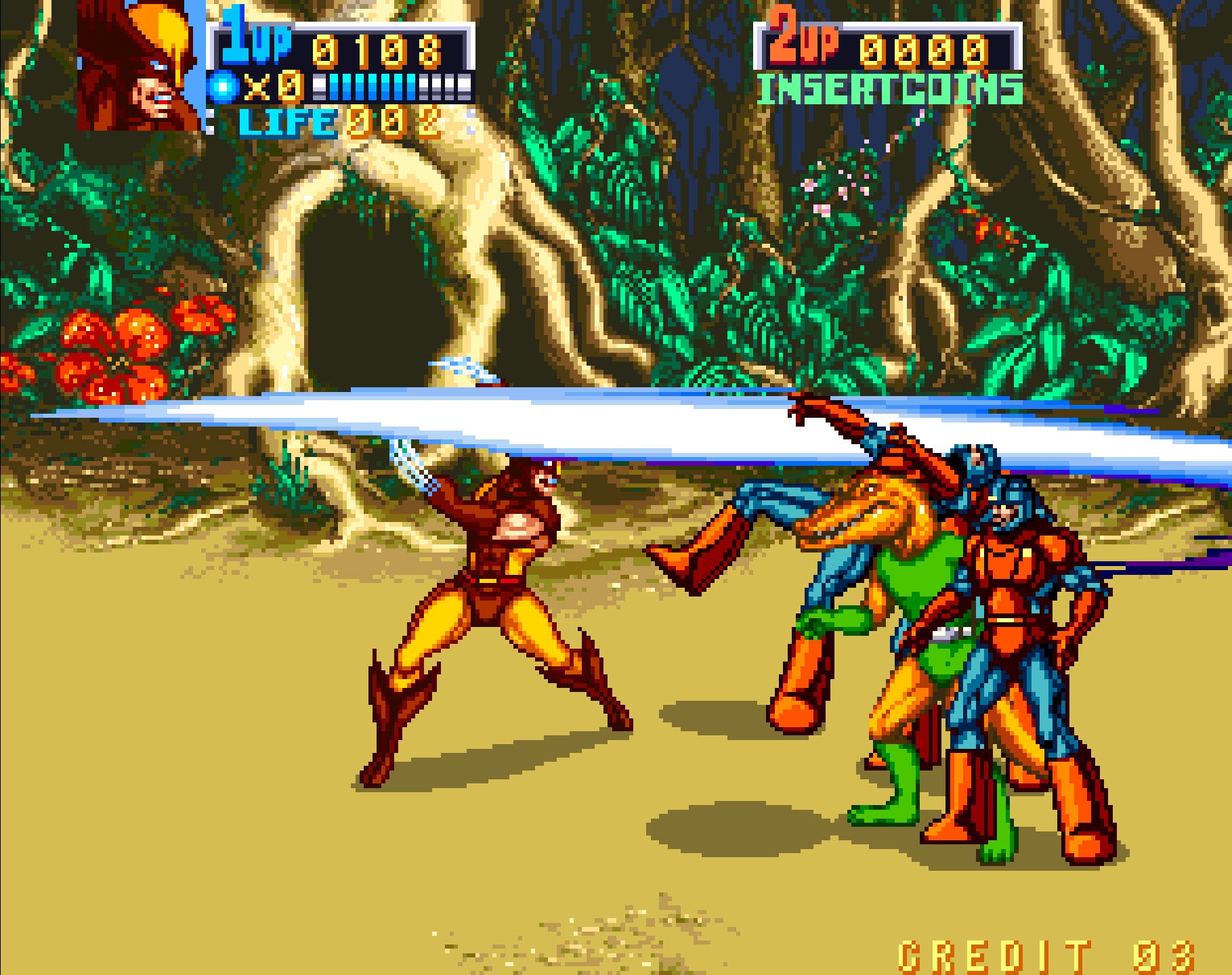
Technological Innovations
Konami has been at the forefront of technological advancements in arcade gaming, ensuring their games stood out in a competitive market.
- Innovative Control Systems: From Track & Field’s button-mashing mechanics to Dance Dance Revolution’s dance pad, Konami redefined how players interacted with games.
- Cinematic Graphics and Sound: Titles like Contra and Gradius pushed the boundaries of visual and audio quality in the arcade era.
- Unique Hardware: Games such as Teenage Mutant Ninja Turtles and X-Men utilized custom cabinets to enhance the gameplay experience.
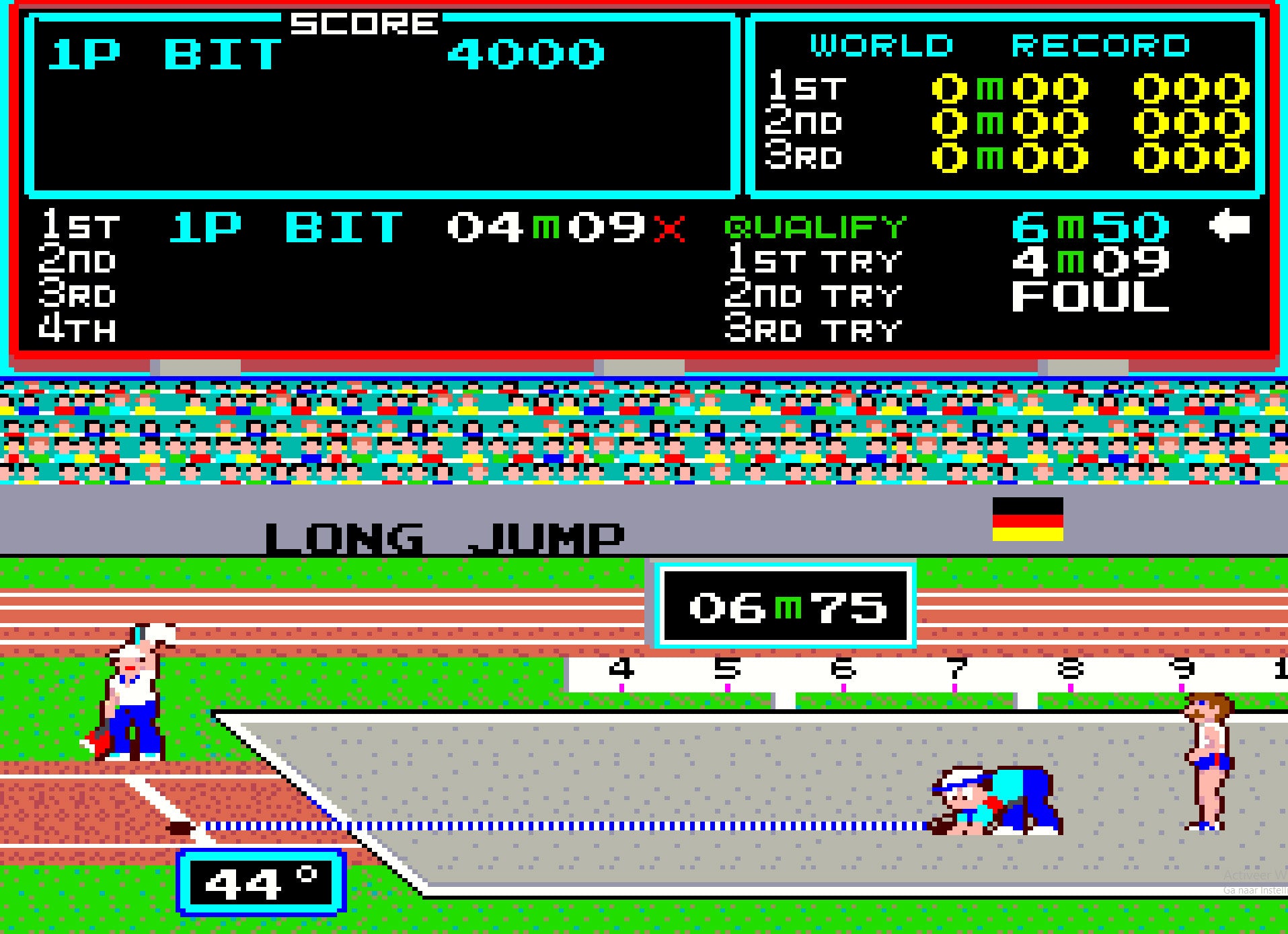
Cultural Impact
Konami’s arcade games transcended the medium, becoming integral to popular culture.
- Licensed Titles: Games based on franchises like Teenage Mutant Ninja Turtles and The Simpsons brought beloved characters to arcades, reaching a wider audience.
- Memorable Music: Iconic soundtracks, particularly in Contra and X-Men, elevated the gaming experience.
- Global Reach: Konami’s success in North America, Europe, and Asia made their games universally recognized.
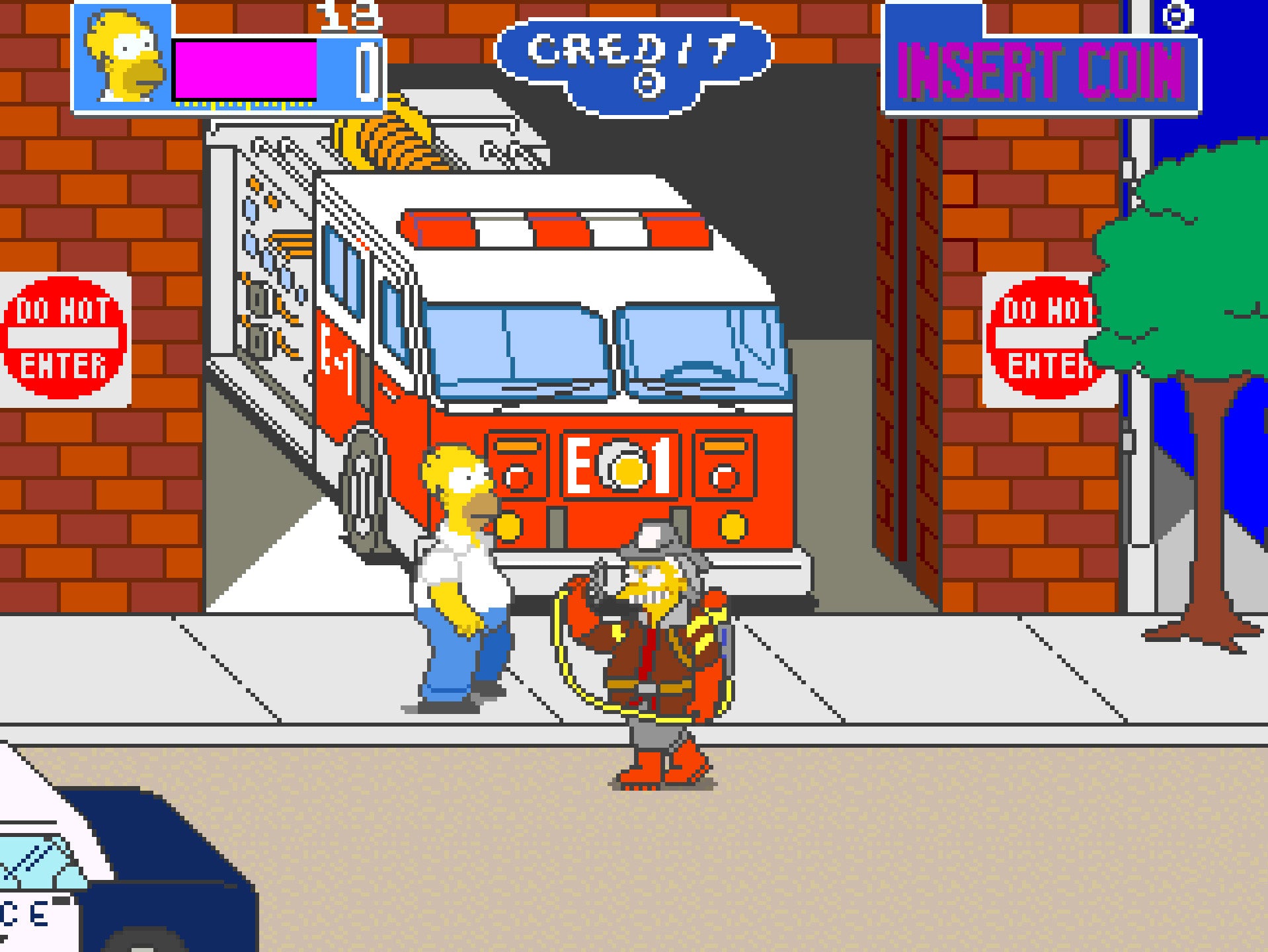
Challenges and Adaptation
Despite their success, Konami faced challenges as the gaming industry evolved.
- Shift to Home Consoles: The rise of home gaming systems reduced the popularity of arcades in the 1990s.
- Market Competition: Rival companies like Sega, Capcom, and Namco introduced competing titles that vied for attention.
- Focus Shift: In later years, Konami concentrated more on console and mobile gaming, but their arcade legacy remains strong.
Enduring Legacy
Konami’s contributions to arcade gaming have stood the test of time, with many of their titles still celebrated today.
- Timeless Classics: Games like Contra and Frogger continue to captivate retro gaming enthusiasts.
- Influence on Modern Gaming: Their innovations in gameplay mechanics and hardware design paved the way for future generations of games.
- Continued Presence: Through re-releases and compilations, Konami’s arcade classics remain accessible to modern audiences.
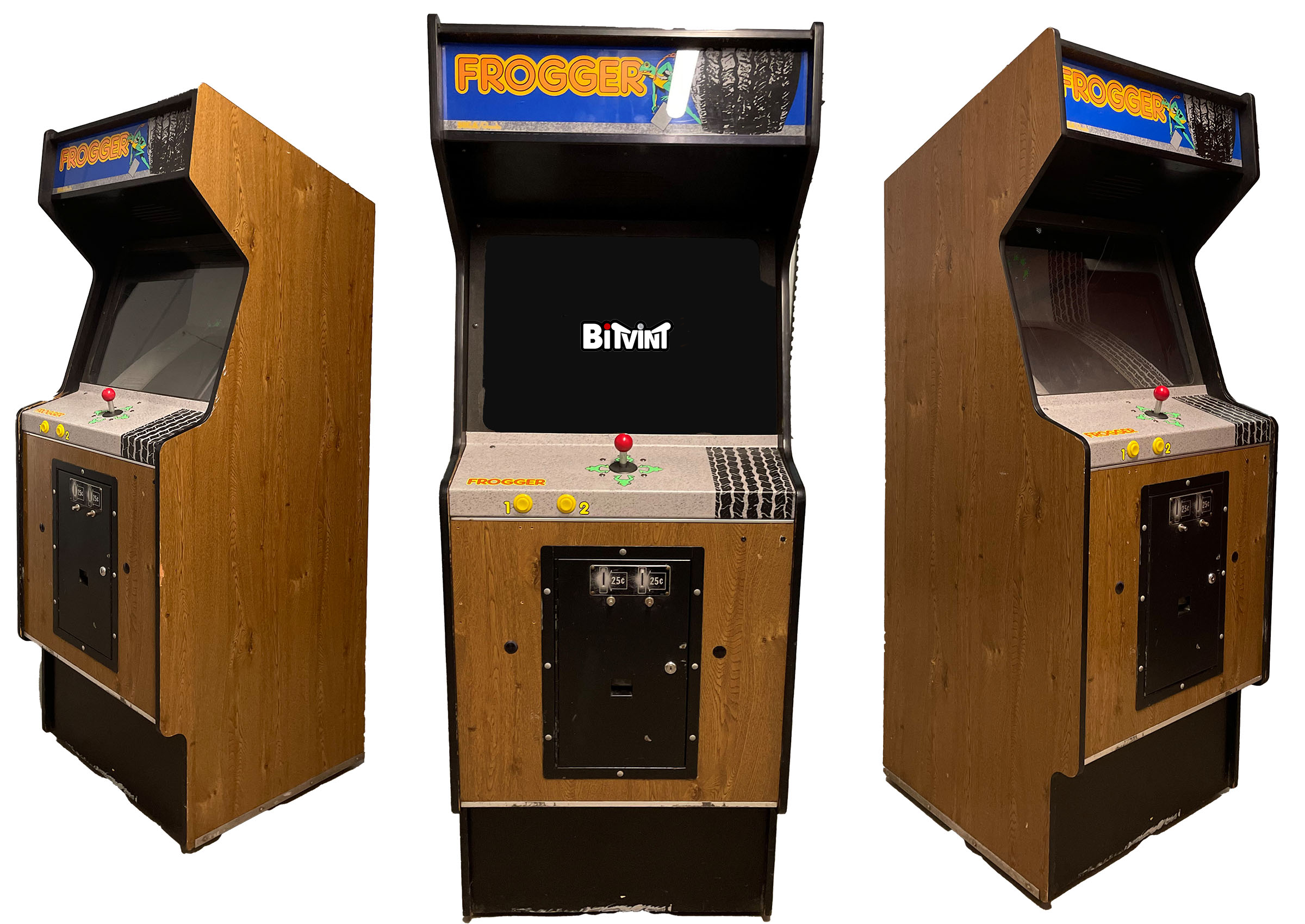
Conclusion
Konami’s impact on arcade gaming is a testament to their innovation, creativity, and commitment to quality entertainment. From timeless classics like Frogger and Contra to groundbreaking titles like X-Men, Konami helped shape the golden age of arcades and beyond. Their enduring legacy serves as a source of inspiration for gamers and developers alike.
Related Pages
- Contra: Experience the iconic run-and-gun action of this Konami classic.
- Sunset Riders: Saddle up for this Western-themed co-op adventure.
- Teenage Mutant Ninja Turtles: Join the heroes in a half shell in this co-op beat ‘em up masterpiece.
- Overview of all Arcade Brands & Manufacturers
- Konami's official website.
Questions you might have:
Which iconic arcade games were developed by Konami?
Konami has developed a plethora of iconic arcade games. Notable titles include "Frogger," where players guide a frog through hazards; "Contra," a run-and-gun shooter known for its cooperative gameplay; "Dance Dance Revolution," a rhythm game that transformed arcades into dance floors; and "Teenage Mutant Ninja Turtles," allowing players to control the iconic heroes in a beat 'em up adventure.
What is the history and origin of Konami as a gaming company?
Founded in 1969 in Japan, Konami initially focused on repairing jukeboxes. It transitioned to video games in the late 1970s, rapidly establishing itself as a gaming innovator. The company's early hits like "Scramble" and "Frogger" laid the foundation for its enduring legacy.
How did Konami contribute to the evolution of arcade gaming?
Konami's innovative gameplay mechanics and diverse genres reshaped arcade gaming. Games like "Contra" popularized cooperative play, "Dance Dance Revolution" introduced interactive rhythm experiences, and "Castlevania" set new standards for action-adventure titles.
What role did Konami play in shaping specific gaming genres?
Konami pioneered and refined various genres. "Frogger" influenced maze and obstacle navigation games, "Gradius" set standards for side-scrolling shooters, while "Silent Hill" pioneered psychological horror, and "Metal Gear Solid" redefined stealth-action games.
What are the unique gameplay mechanics of Konami's games?
Konami's games offer a range of unique mechanics, from the rhythmic footwork of "DDR" to the precise shooting in "Gradius" and the cooperative action in "Contra." These mechanics not only provided engaging gameplay but also set trends within their respective genres.
What is the current status of Konami's involvement in arcade gaming?
Konami continued to release video games, including entries in their popular franchises such as "Pro Evolution Soccer" (PES), "Yu-Gi-Oh!," and mobile titles like "Castlevania: Grimoire of Souls." However, there was a notable shift away from traditional console game development.

